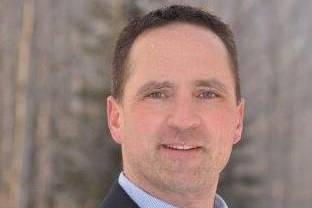The Alaska House of Representatives passed their version of the state’s budget for the fiscal year 2020 last week. The House budget includes a reduction in spending of about $200 million, which is significantly less than the spending cuts of $1.6 billion proposed by Gov. Mike Dunleavy.
The Clarion spoke with Rep. Ben Carpenter, R-Nikiski, after the vote to discuss how the House budget differs from the governor’s, as well as the priority of the House now that the budget has moved to the Senate for discussion.
Carpenter said his continuous battle for a fiscally sustainable budget hasn’t stopped now that the House has passed their budget. He says his priority has always been for a long-term fiscal plan.
“It has to be,” Carpenter said. “We need to grow the economy.”
He said the lack of a sustainable fiscal plan tells businesses that the state may increase taxes and that investing in Alaska is a risky decision.
Carpenter said he doesn’t think the final budget will look like Dunleavy’s proposed budget.
“Absolutely not,” Carpenter said.
Last month, the House Finance Committee traveled across Alaska to hear from constituents about the budget. In Soldotna, Rep. Gary Knopp, R-Kenai/Soldotna, House Speaker Bryce Edgmon, I-Dillingham, and Vice Chair of the House Finance Committee Jennifer Johnston, R-Anchorage, came to speak to hundreds of peninsula residents about the budget. Carpenter listened to the meeting from Juneau. He said the meeting only brought out a small group of people.
“What we heard was that the majority — well over 90% — believed some form of the PFD or taxation use was in order,” Carpenter said. “We heard from self-identified public employees, or someone who is reliant on public spending. We did not hear from people who believed we need to reduce state spending.”
As a freshman legislator, Carpenter said he’s proud he’s stuck strongly to fiscal responsibility.
“Our budget included $200 million in cuts,” he said. “It is a big number. I consider it a success, but still nowhere where it needs to be.”
Carpenter also said he was not happy the House hasn’t seen a single crime bill.
Carpenter said he supported historical payouts of a permanent fund dividend check, using the formula in the statute.
“A good fiscal policy would include as much PFD as we can,” he said. “It would help weather the lack of funds, with drastic cuts in state spending.”
Dunleavy recently put pressure on the Legislature to consider the constitutional amendments he’s put forth, which look at implementing a spending cap, changing the way Alaskans can implement new taxes and protecting the PFD in statute.
Carpenter said he’s in favor of the amendments, especially in introducing a state spending cap.
When it comes to Dunleavy’s bills that would shift local gas and oil property taxes and fishing taxes from municipalities to the state, Carpenter agrees that government spending could be reduced at every level.
“If you voted for Dunleavy, and you want to reduce spending, that is going to put a burden on everyone at every level,” he said. “All levels of government need to be having a conversation about spending.”
Now that the House has provided their budget to the Senate, Carpenter expects the two bodies to come to some kind of compromise.
“It will fall way short of Dunleavy’s budget,” he said.

